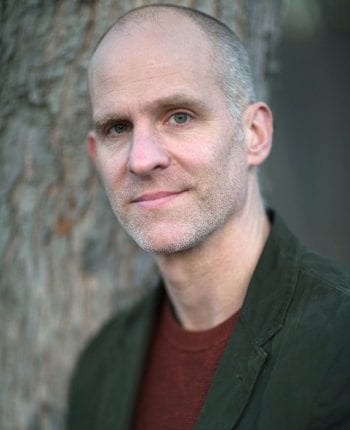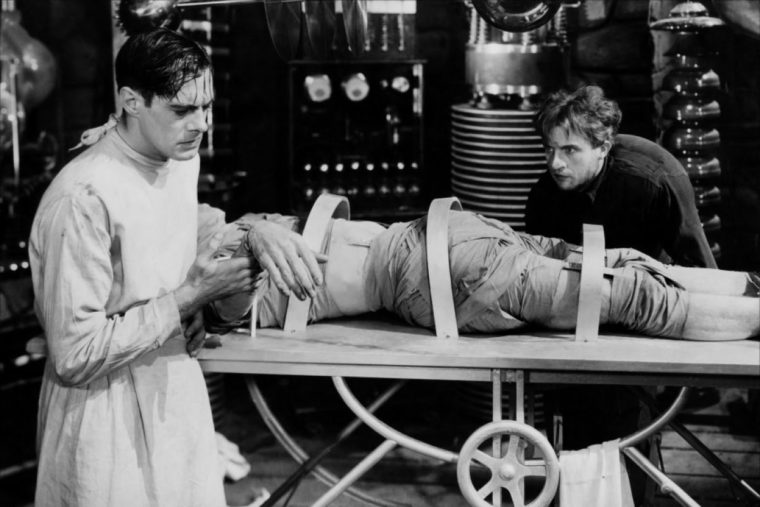Patient care. Informed consent. Genetics and transplantation.
Mary Shelley’s “Frankenstein” is a thrilling adventure but also a prescient guidebook to the moral and ethical dilemmas of 20th and 21st century medicine.
This month, Washington University in St. Louis’ School of Medicine and College of Arts & Sciences will present “The Curren(t)cy of Frankenstein,” a three-day forum that explores Shelley’s novel through the lens of medical research, education and practice.
“Victor Frankenstein succeeds in conquering death,” said Rebecca Messbarger, professor of Italian and co-founder of the Program in Medical Humanities, both in Arts & Sciences. “He creates an extra-human being, one that is stronger, faster, more agile, and whose parts are in themselves more beautiful and proportional than any natural man’s.
“Yet Frankenstein never contemplates the possible consequences of the composite being he brings to life,” Messbarger continued. “He never truly considers the human impact of his experiments. To know more, to be the first, to surpass all before him in this achievement and revel in the glory — these are what drive him.
“By the novel’s end, Frankenstein has been destroyed by the terrible consequences of his ambition,” Messbarger added. “His grief at the loss of his own soul is a parable for the modern age about the destructive force of science divorced from humanity.
“As romantics like Mary Shelley warned, there is no triumph in it,” Messbarger concluded. “Humanity must be at the center of science.”
‘The Curren(t)cy of Frankenstein’
“The Curren(t)cy of Frankenstein” is presented as part of Washington University’s ongoing Frankenstein Bicentennial, which celebrates the 200th anniversary of the novel’s publication.

The forum will begin Friday, Sept. 28, with celebrated science writer Luke Dittrich, who will discuss “Shelley’s Frankenstein and modern medical practice: A family story of lobotomy.” (While in St. Louis, Dittrich also will discuss his book, “Patient H.M.: A story of memory, madness and family secrets,” for the university’s Assembly Series.)
The forum will continue Saturday, Sept. 29, with William Newman, historian of science at Indiana University, who will explore “Frankenstein, the homunculus, and the long history of artificial life.” On Sunday, Sept. 30, Amy Pawl, senior lecturer in English in Arts & Sciences, will argue that “We must save Frankenstein’s monster,” while Minsoo Kang, historian at the University of Missouri-St. Louis, will make the case that “We must kill Frankenstein.”
Prior to each lecture, students and faculty from the Performing Arts Department in Arts & Sciences will stage a scene from Nick Dear’s theatrical adaptation of “Frankenstein.” Following each will be a panel discussion with leading biomedical ethicists, medical educators and practitioners, artists, humanists and university administrators on Frankenstein’s relevance to medical practice today.
All events take place in the School of Medicine’s Clopton Auditorium, located in the lower level of Wohl Clinic, 4950 Children’s Place. The forum is free and open to the public but space is limited and RSVPs are required. For a complete schedule and list of participants, visit the Frankenstein Bicentennial webpage.
Sponsors
“The Curren(t)cy of Frankenstein” is sponsored by the Center for History of Medicine; the School of Medicine; Office of the Provost; the Bernard Becker Medical Library; the Program in Medical Humanities; the Center for the Humanities in Arts & Sciences; the Office of Faculty Affairs; the Department of Developmental Biology; the Medical Staff Association of Barnes-Jewish Hospital; and the Arts & Sciences Connections Series.

Comments and respectful dialogue are encouraged, but content will be moderated. Please, no personal attacks, obscenity or profanity, selling of commercial products, or endorsements of political candidates or positions. We reserve the right to remove any inappropriate comments. We also cannot address individual medical concerns or provide medical advice in this forum.